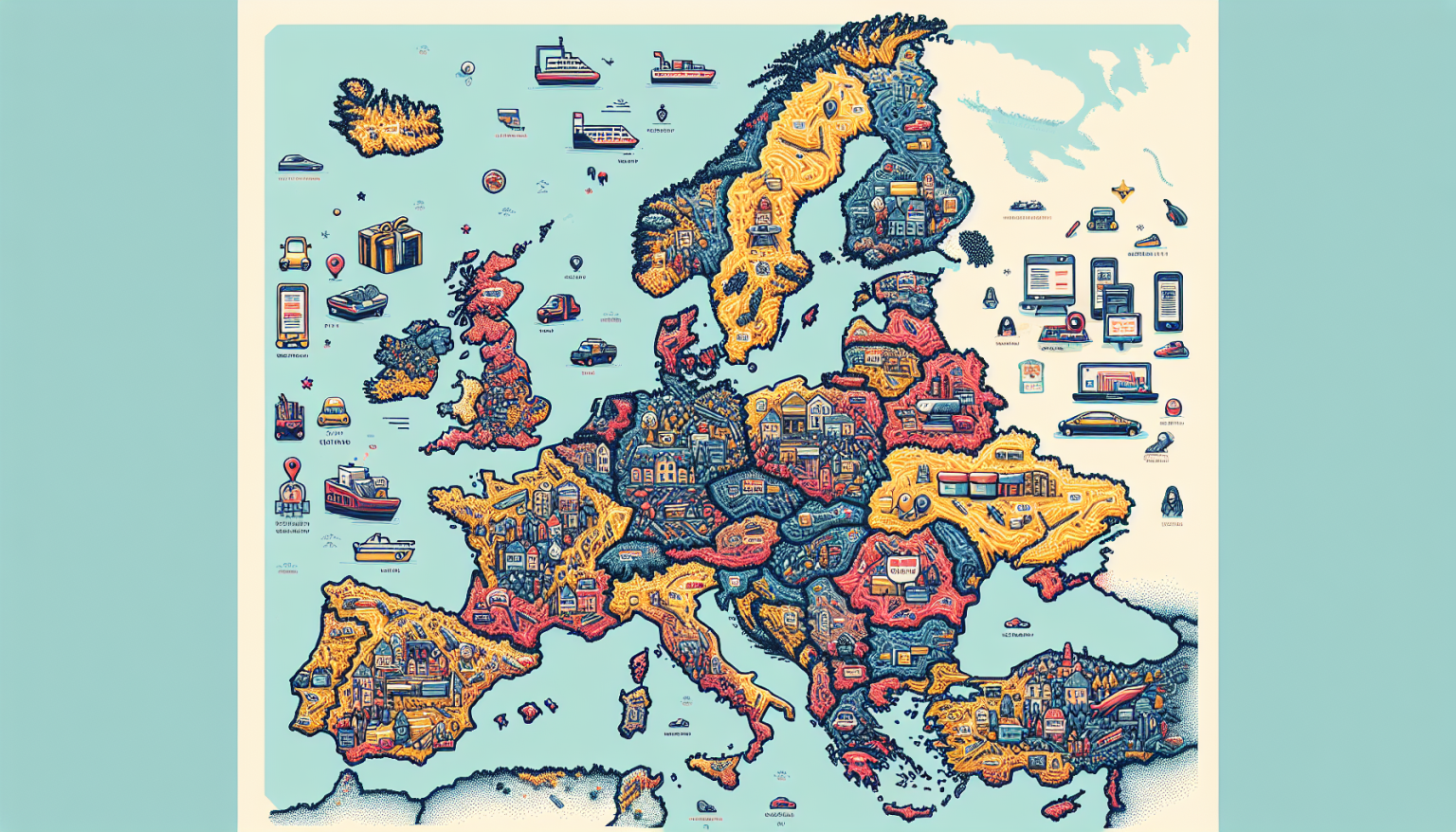In 2023, e-commerce has reached significant penetration in the European Union, with 58.1% of people aged 16 to 74 stating they have made online purchases or requests for goods and services in the three months prior to a recent survey. This increase reflects not only the growing comfort of consumers with digital platforms, but also a widespread trend towards digitalization in various areas of everyday life.
However, the adoption of e-commerce is not uniform across the region. Regions such as Czechia, Denmark, Ireland, France (except for some remote areas), as well as the Netherlands, Slovakia, Finland, Sweden, Estonia, Luxembourg, and Malta, surpassed the EU average in this activity. In contrast, a larger group of regions, including Bulgaria, Greece, Italy, Lithuania, Portugal, Romania, Slovenia, Croatia, Cyprus, and Latvia, positioned below this average, indicating significant disparities in the use of digital technologies.
A more detailed analysis highlights 21 regions where e-commerce activity is notable, with online shopping rates exceeding 80% of the population. Among these, the Netherlands stand out with the top three levels of usage in Utrecht (87.8%), Noord-Holland (86.4%), and Overijssel (85.9%). Positive figures have also been observed in Sweden, Denmark, Ireland, and Czechia.
On the other hand, it is reported that 20 regions in the EU show alarming levels of e-commerce activity, with less than 35% of the population engaging in online purchases. This group includes six regions in Romania, five in Italy, and other areas in Bulgaria, as well as some remote regions in France and one in Poland. It is especially concerning that in two regions, the Bulgarian region of Yugoiztochen (19.8%) and the French Guadeloupe (18.7%), less than one in five people have used online commerce.
These differences in the adoption of e-commerce among the various regions suggest a fragmented landscape in terms of digitalization. This situation highlights the urgent need to implement policies that promote digital inclusion and improve internet access in lagging areas. The transformation in consumption dynamics through digital platforms promises to have a significant impact on the European economy, making it necessary to closely monitor these trends to better understand the advancement of digitalization in present society.
via: MiMub in Spanish
